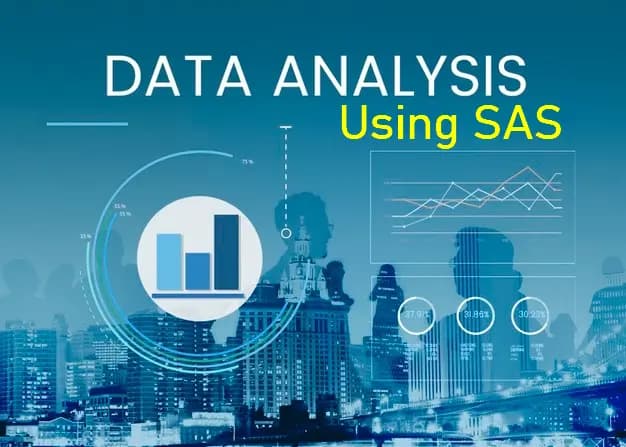“Data is the new oil,” according to British mathematician Clive Humby, was first used in 2006. This comparison still holds true now since businesses now value customer data highly. Extraction of useful information from raw data is just as important for creating petroleum products as the extraction of petroleum from crude oil. Data analysis is then used in this situation. Data analysis is the process of gathering and manipulating data to help business decision-makers make well-informed choices by drawing insights from the raw data using mathematical approaches.
Here is a list of reasons for motivating you to learn data analysis skills.
- The first and foremost reason you should learn Data Analytics skills is that data is widely considered the new oil. Many multinational companies have started leveraging their customer’s data to increase their profit margins.
- As per Glassdoor, the national average salary of a data analyst in the US is $69,517 per year. This suggests that the data analyst’s job comes with a handsome salary package.
- Gradually, as the world heads towards digital transformation, the data analyst role will likely be in demand in the future.
- After honing all the relevant skills for becoming a data analyst, one can easily switch to Big Data Engineer roles.
- Learning data analytics skills will also open the doors of freelancing for you.
With these suggestions on how to handle the issue, you may develop new skills, persevere through the inevitable bumps in the road, and boost your confidence as a data analyst.
1. Remember that data skills are an investment in your future.
Demand for skilled data analysts is growing — the World Economic Forum Future of Jobs 2020 report listed this career as number one in terms of increasing demand. And hiring data analysts is a top priority across a range of industries, including technology, financial services, health care, information technology, and energy.
According to the Robert Half Salary Guide, data analysts in the US make an average of $106,500, depending on skills and experience. That means the energy you invest now could pay off later with an in-demand, well-paying career.
Learning new skills takes time and energy. Think of these expenditures as an investment in your future self. Each time you write a new line of code, have an “aha” moment for a tricky math concept, or finish a data project for your portfolio, you’re laying the foundation for a successful career in data.
2. Build foundational skills with an online course.
If you’re new to data analysis, it can help to start with a structured program that covers the basics and introduces you to some of the tools of data analytics:
- Data types and structures
- Processing and preparing data
- Methods of data analysis
- Data visualization and storytelling
- Using data to answer questions
By getting a broad overview, you can assess what skills you already have and identify areas for improvement.
3. Set aside a little time for your data skills each day.
You don’t have to drop everything and study full time to start making progress toward a career in data. You might be surprised by how much you can accomplish with as little as 15 minutes a day.
Read Also: Does Social Computing Integrate Online Shopping?
Set yourself up for success by planning out how your learning will fit into your life. As you’re making a plan, ask yourself these questions:
- When do I feel most focused? When do I have the fewest distractions?
- To what part of my day can I anchor my learning time? Right after my first cup of coffee? During my lunch break? Just after dinner?
- Where can I work with few to no distractions?
- Have I blocked out this time on my calendar?
- Can I set an alarm to remind myself of my commitment?
- Who do I need to inform of my plan to avoid interruptions? Roommates? Family members? Colleagues?
4. See mistakes as learning opportunities.
There will be times, especially early on, when a small error in your code causes your program to crash. Or maybe you spend time building a database only to realize you could have modeled it more efficiently. That’s okay! Give yourself permission to make mistakes. This is how we learn.
Accuracy is certainly important once you’re on the job, but while you’re learning, embrace the fact that you will mess up. You will feel frustrated at times, but you’ll also learn from those struggles and become a better analyst by working through them.
5. Develop your data analyst skill set bit by bit.
After you’ve built a foundation in data analysis with some form of structured overview, pick one skill and dig deeper. Choose to build confidence with a skill you already have some proficiency in or tackle your biggest weakness head-on.
Here are some ideas for places to start:
- Learn the basics of python or R programming.
- Start interacting with data using SQL (Structured Query Language).
- Brush up on your spreadsheet skills with an Excel class.
- Get a refresher in statistics or linear algebra.
6. Practice your skills on real data projects.
You don’t have to wait until you have a job as a data analyst to start gaining experience. As you’re learning the theories behind the practice, apply them to the real world by practicing on real data. Look for courses that incorporate hands-on projects and assignments, or take a do-it-yourself approach by designing your own projects using free, open-source data sets.
Pick a topic you’re interested in and start digging into the data to see what you can find. Here are some ideas to get you started:
- Analyze what factors influence the popularity of a video on YouTube.
- Use Google Books Ngram to determine what words were used most frequently in books between 1950 and 1990.
- Visualize which countries are using which COVID-19 vaccines (and at what rates) with this daily-updated data.
- Use Python to create an SQLite database for saving your contacts (name, email, phone number, address, etc.).
- Practice cleaning and normalizing this data set of more than 200,000 Jeopardy questions from Reddit.
7. Focus on your workplace skills too.
Successful data analysts leverage their technical skills on the job, but they also rely on human skills, like solid communication. As an analyst, you might be tasked with presenting your findings to decision makers who may not possess the same technical knowledge. The ability to translate complex ideas into easy-to-understand presentations can be a huge advantage.
Other workplace skills, like curiosity, problem solving, teamwork, and attention to detail, also appeal to employers. The good news is that you probably already have some of these skills.
8. Commit to lifelong learning.
Let’s talk about what this really means. It doesn’t mean you need to commit to a full time degree program or wait years to get a job as a data analyst. It’s possible to develop the skills you need to get an entry-level role as a data analyst in a matter of months. But getting a job doesn’t mean your learning should stop. In this field, you’ll have an opportunity to continue improving your skills over time.
And you’ll keep getting better at it. Research has shown that learning is a skill. The more we practice learning, the faster and more efficient we become at developing expertise.


